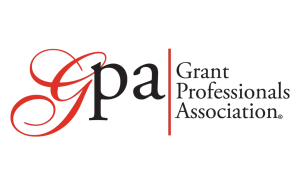In all the thunder and splutter about AI, ChatGPT and the rest, it’s common to hear proposal writers of a certain age get nostalgic for a simpler time when — wait a minute. Was that time so simple? What do grant seekers really miss about the business of proposal writing and submission long, long ago?
First, they needed to find out what we could about funders. Back in the 1980s, they turned to the Catalog of Federal Domestic Assistance for information about the federal government’s 2,293 programs of possible funding for our work. (You can buy an heirloom version of the 900-page directory for $170). Back in the day, the job involved lots of squinting and cross-referencing and strong coffee.
What about foundations? Grant researchers became familiar with the Foundation Directory, bulky volumes of data compiled and published by the Foundation Center (it’s now Candid) and housed in some libraries across the country. More squinting, more dead-ends and more coffee.
After a lot of hours doing this research, it was time to write the proposal. If you think it’s labor-intensive now, imagine the world at the dawn of word processing and web searches. Younger proposal writers might not ever know the wonderful “thwackthwack” of an IBM Selectric or Wheelwriter as the words got pounded onto the page, after page, after page.
How to submit, back in the day? Paper, paper, lots of paper, sometimes 25 copies of the whole proposal. True story: a nonprofit prepared 25 copies of a 38-page federal application, boxed them up, rushed them by small plane to Washington, D.C. The plane crashed (pilot was OK), box was found, finally made its way to the federal agency. But, it was late, and not reviewed. “The box sat unopened for days and days,” said Thomas Boyd, chief editorial advisor to The Grantsmanship Center in Los Angeles, California, “while snowstorm / plane crash / holiday weekend appeals went nowhere.”
In those ancient times, funders did not ask about DEI. Community-centric development had not yet been invented. Personal pronouns were he or she, him or her, period. Nothing was evidence-based. Government per diem rates were $16-25.
Of course, it’s a good thing that those things have changed. Of course, today’s proposal writers can click their way through the world of data without leaving home. And there are far fewer boxes of paper to be shipped to funders. It’s interesting to compare and contrast the benefits and challenges of AI with what we had to do way, way back then.








